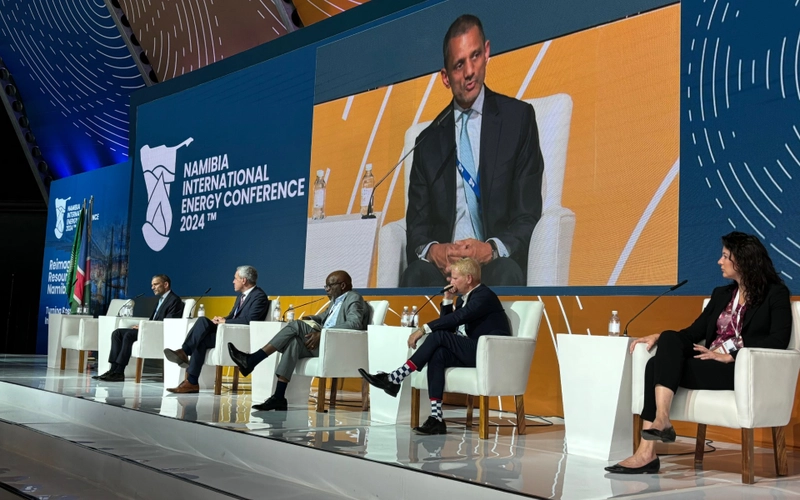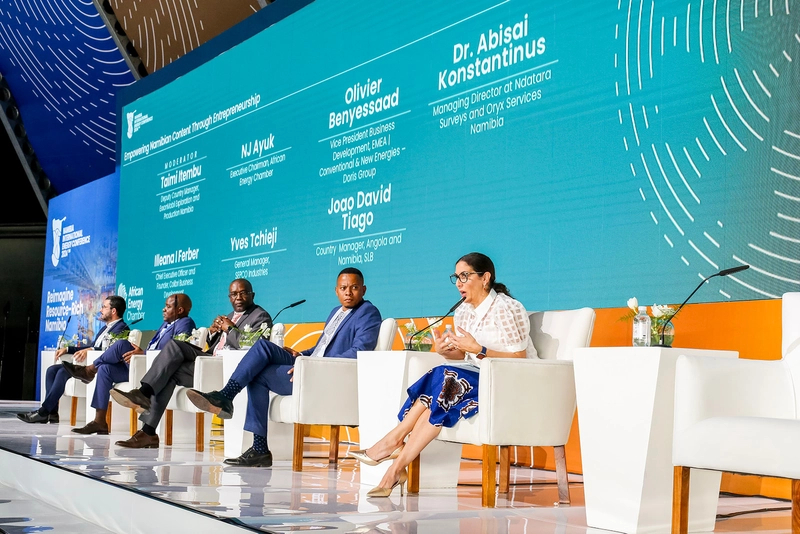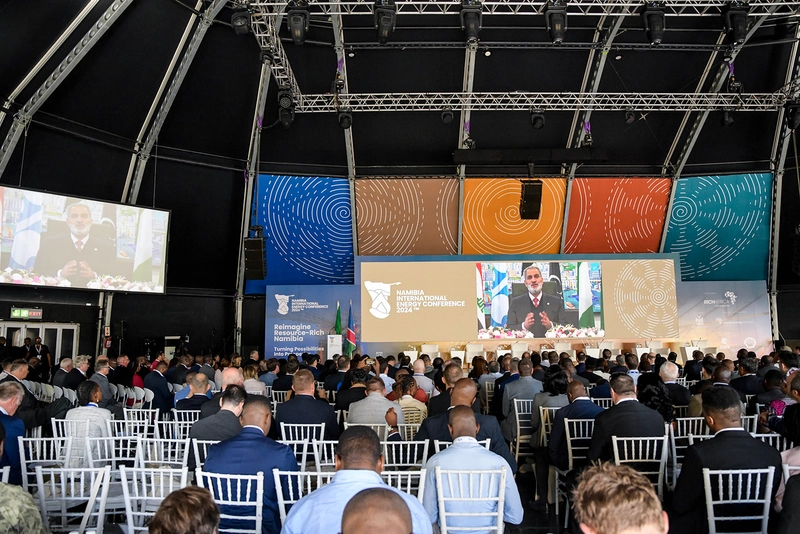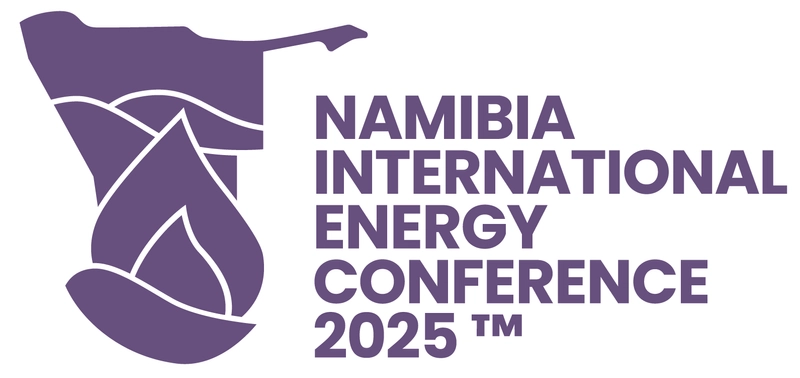Namibia International Energy Conference (NIEC): A Gateway to Africa’s Energy Future
The Namibia International Energy Conference (NIEC) stands as a significant and influential event designed to foster the growth of Namibia as a prominent energy hub within Africa. Hosted annually, the conference serves as a critical platform for government representatives, industry leaders, investors, and energy experts to engage in strategic discussions, promote investments, and chart the future of the energy landscape in Namibia and beyond. With a sharp focus on innovation, collaboration, and sustainability, the NIEC seeks to transform strategic dialogue into actionable outcomes that will not only benefit Namibia but also contribute to the broader energy sector in Africa.
The need for robust energy solutions is greater than ever as Africa experiences rapid population growth, urbanization, and industrialization. The NIEC recognizes the importance of addressing these challenges through new approaches, technology, and investment, and it plays a vital role in shaping the future of the continent’s energy sector.
Why Namibia? A Rising Energy Player in Africa
Namibia is quickly establishing itself as a key player in the African energy market, thanks to its favorable climate, vast land, and renewable energy potential. The country is blessed with abundant resources such as solar energy, with vast desert landscapes that are perfect for large-scale solar projects, and strong wind conditions along its coastal regions. These resources make Namibia an ideal location to host a leading energy conference that focuses on sustainability and clean energy solutions.
In addition to renewable energy, Namibia also possesses substantial reserves of fossil fuels and minerals, which are essential for energy production. As a country with a well-developed mining sector, Namibia has made significant strides in leveraging its natural resources to boost economic growth. The NIEC, therefore, serves as a platform to showcase how the country can balance traditional energy sources with a strong push for renewable energy, creating a comprehensive energy strategy for the future.
An Unmatched Forum for Industry Leaders
The NIEC brings together a diverse mix of stakeholders from across the global energy sector, making it one of the most comprehensive and dynamic events in Africa’s energy calendar. With participation from a range of sectors, the conference offers unparalleled networking opportunities for:
Governments and policymakers who shape regulations and frameworks that govern energy production, distribution, and consumption.
Energy industry leaders who provide the know-how, technologies, and innovations that drive the development of energy solutions.
Investors looking for profitable and sustainable ventures in the African energy space, especially in renewable energy projects.
Technology providers who present cutting-edge solutions for energy generation, storage, and distribution.
By facilitating conversations between these diverse groups, the NIEC aims to unlock the full potential of Namibia’s energy resources while fostering strong international partnerships that will drive the growth of sustainable energy in the region.
Key Themes Driving the NIEC
The Namibia International Energy Conference tackles several key themes that reflect both global trends and regional needs. These themes are central to shaping the future of energy in Namibia and the broader African continent.
1. Renewable Energy Potential in Namibia
Namibia’s energy potential is predominantly renewable. The country enjoys high solar radiation and has excellent wind conditions, especially along its coastline. The conference will delve into:
Solar energy innovations, including solar farms, solar home systems, and the potential for expanding solar energy production.
Wind energy opportunities, particularly offshore wind projects, which are gaining traction in Namibia’s coastal regions.
The integration of renewable energy into national grids, including smart grid technologies that allow for efficient energy distribution.
By tapping into these renewable resources, Namibia aims to reduce its dependency on fossil fuels while contributing to regional energy sustainability.
2. The Role of Technology in the Energy Transition
As energy transitions worldwide become increasingly technology-driven, the NIEC focuses on the latest advancements in energy production and storage. The conference will showcase innovations such as:
Battery storage solutions that enable more efficient management of renewable energy and address intermittency issues.
Hydrogen power as a clean energy solution for heavy industries, transportation, and domestic use.
Digital technologies that allow for better energy management, from predictive analytics to AI-based energy optimization.
These technological developments will be essential for Namibia’s long-term energy strategy, ensuring that the country not only generates power but also distributes and manages it efficiently.
3. Investment Opportunities and Financing Mechanisms
For energy development to succeed, it must be supported by adequate financial backing. Namibia recognizes that attracting both local and foreign investment is crucial for realizing its energy potential. The NIEC will highlight:
Investment incentives provided by the Namibian government to encourage renewable energy projects, such as tax breaks, grants, and regulatory support.
Funding options available for both small-scale and large-scale energy projects, including green bonds, venture capital, and international development finance.
Public-private partnerships (PPP), which are essential for the successful implementation of large infrastructure projects such as solar parks and wind farms.
This focus on investment aims to secure the necessary capital for developing Namibia’s energy infrastructure and expand its capacity for energy generation.
4. Regional Energy Collaboration
Energy is a cross-border issue, and the NIEC will also explore opportunities for regional cooperation in energy production and distribution. Namibia is ideally situated to serve as an energy hub in Southern Africa, and the conference will address:
Energy trading between Namibia and its neighboring countries, ensuring energy supply stability and the ability to share surplus power.
The development of regional energy markets, where countries can pool resources and support each other’s energy needs.
The role of energy interconnectivity through cross-border transmission lines and integrated grids to ensure a reliable and resilient energy system.
By working together with neighboring nations, Namibia can become a key player in Africa’s energy landscape, providing energy security and driving economic growth across the region.
5. Policy Frameworks and Regulatory Support
A strong policy framework is crucial for the successful development of the energy sector. The NIEC will provide a platform for discussing:
Regulatory reforms that are needed to stimulate growth in the energy sector, including the introduction of feed-in tariffs, carbon pricing, and clean energy incentives.
The role of government policies in attracting investments and fostering innovation in the renewable energy sector.
Energy access policies to ensure that electricity reaches rural areas and underserved communities across Namibia.
These discussions will be key in aligning Namibia’s energy policies with international best practices and helping to establish a favorable environment for investment and growth.
Namibia's Path to Energy Leadership
The Namibia International Energy Conference (NIEC) serves as a vital platform for reshaping the future of energy in Africa. By focusing on renewable energy, investment opportunities, technological innovations, and regional cooperation, the conference is helping to position Namibia as a leading player in the energy transition.
As Africa moves towards greater sustainability, the NIEC provides a forum for governments, industry stakeholders, and investors to collaborate and create solutions that benefit both Namibia and the continent as a whole. Through continued dialogue, partnerships, and strategic action, Namibia is well on its way to becoming a central hub for clean and sustainable energy in Africa.

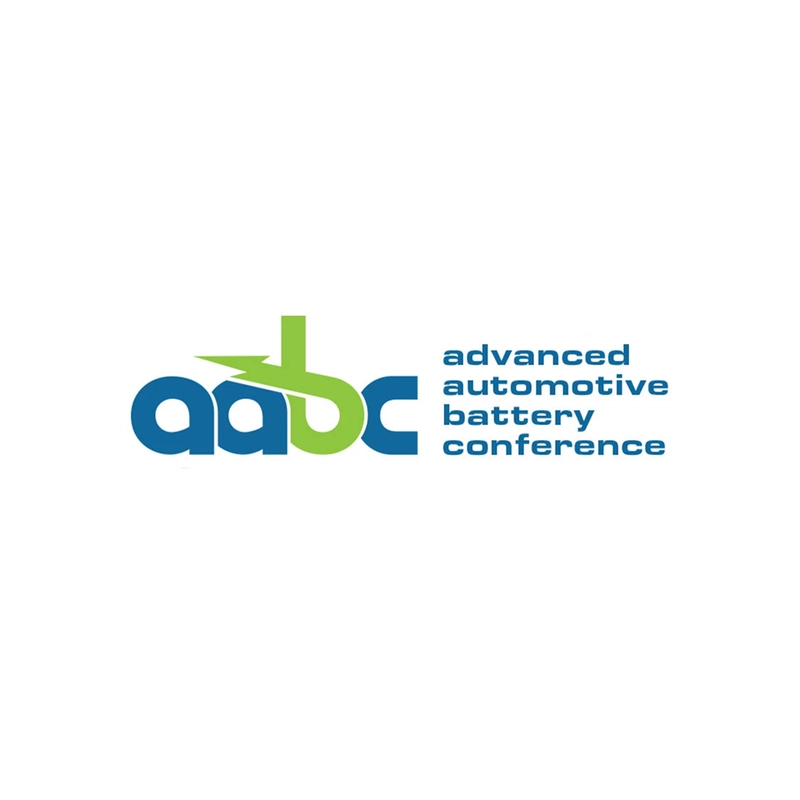
Annual Advanced Automotive Battery Conference
The Annual Advanced Automotive & Battery Conference (AABC) Las Vegas is one of the premier events for anyone involved in the evolving world of automotive battery technology. Held at Mandalay Bay in Las Vegas, this highly anticipated conference attracts professionals from all corners of the automotive and energy sectors, offering a unique opportunity to explore the latest breakthroughs and innovations in battery design, development, and manufacturing. As the automotive industry increasingly shifts toward electric vehicles (EVs) and hybrid electric vehicles (HEVs), the AABC Las Vegas has become an essential gathering for those seeking to stay at the forefront of battery technology.
Bringing together a diverse group of experts, including battery technologists, automotive engineers, material scientists, and EV component developers, AABC serves as a platform for sharing critical knowledge and discussing the future of automotive battery systems. With a particular focus on advancements in lithium-ion batteries, solid-state batteries, and emerging technologies such as metal-air batteries, the conference covers the full spectrum of battery innovations that are shaping the next generation of electric transportation. It’s an event where cutting-edge research meets practical applications, offering both technical sessions and hands-on demonstrations of new battery materials, designs, and manufacturing processes.
One of the highlights of AABC Las Vegas is its trade fair exhibition, which features the latest products, technologies, and services from leading battery manufacturers and suppliers. Attendees have the chance to explore the newest developments in battery materials, including innovations in cathodes, anodes, and electrolytes that are crucial for improving performance, safety, and reliability in automotive applications. The exhibition also allows visitors to network with industry peers, meet potential partners, and gain insights into the research and development initiatives that will drive the future of the automotive battery industry.
In addition to the technical presentations and exhibition, the AABC Las Vegas conference also offers an array of networking opportunities, where professionals can connect and collaborate on the challenges facing the automotive battery sector. Whether it’s discussing the latest advancements in battery testing and modeling, exploring new manufacturing processes, or delving into the regulatory landscape surrounding EV and HEV technologies, AABC serves as a hub for knowledge exchange and industry collaboration.
For anyone involved in the design, development, testing, or manufacturing of automotive batteries, AABC Las Vegas is an unmissable event. The conference not only provides an in-depth look at the current state of automotive battery technology but also offers a glimpse into the future, where innovations in battery chemistry, performance, and manufacturing will play a critical role in the transition to cleaner, more sustainable transportation. With its comprehensive agenda, high-profile speakers, and global audience, AABC Las Vegas stands as one of the most important gatherings for professionals in the automotive and energy industries, driving forward the conversation on the future of mobility and the role of advanced battery technologies.


Battery Minerals & Mines Summit
As the world pushes forward in its efforts to decarbonize and transition to a sustainable future, the spotlight is increasingly turning to the mining industry, particularly in the realm of battery minerals. The Battery Minerals & Mining event offers a timely platform for exploring the commercialization of critical battery mineral resources, which are essential for powering the technologies driving global decarbonization. With a growing emphasis on the electrification of mining operations, the event will delve into the pressing need for the mining sector to adopt sustainable practices while ensuring the timely and safe extraction and delivery of materials crucial to the clean energy transition.
The rise of electric vehicles, renewable energy storage, and advanced technologies has placed unprecedented demand on materials like lithium, cobalt, nickel, and graphite, all key components in battery production. The mining industry is being asked to adapt quickly, meeting the ever-increasing demand while simultaneously addressing environmental concerns and national security issues tied to supply chains. This event will bring together a diverse group of stakeholders—from mining companies and equipment manufacturers to regulatory bodies and researchers—all with a shared goal of advancing the safe and efficient commercialization of battery minerals.
One of the key focuses of the event will be on the electrification of materials transport and power systems at mining sites. As the push for sustainability grows, many in the industry are working to replace diesel-powered machinery with electric alternatives. This shift promises to reduce carbon emissions, improve efficiency, and reduce the environmental impact of mining operations. However, transitioning to electrified mine sites brings its own set of challenges, particularly regarding safety, infrastructure, and the integration of renewable energy sources. Experts will share insights into how these issues are being addressed, highlighting innovative solutions and best practices that are making electrification a viable and sustainable option for the mining sector.
Equally important is the commercialization of critical ore deposits. With strategic critical mineral resources located across various geographies, it is essential that these resources are extracted and brought to market in a timely and efficient manner. The event will explore how mining companies can streamline their operations to meet the demands of battery manufacturers, while also navigating supply chain constraints and geopolitical concerns that could affect global mineral availability. Speakers will discuss how to balance the need for fast-tracking resource extraction with the requirement to uphold safety and environmental standards, ensuring that mining operations can contribute to a sustainable future without compromising on responsibility.
Attendees will also have the chance to engage with leading researchers who are driving forward new technologies in mining and mineral extraction. These innovations are critical not only for improving the efficiency of mineral recovery but also for reducing the ecological footprint of mining operations. In an era of heightened environmental awareness, the mining community is under increased scrutiny to ensure that its practices are aligned with global sustainability goals, making the development of greener, more efficient technologies a top priority.
This event provides a unique opportunity for professionals across the mining, energy, and technology sectors to come together, collaborate, and share knowledge on how to meet the growing demand for battery minerals. By fostering dialogue between mining companies, equipment providers, regulatory agencies, and researchers, the Battery Minerals & Mining conference seeks to accelerate the transition to a more sustainable, electrified, and efficient mining industry, ensuring that critical resources are ready to power the clean energy revolution. Whether you're involved in mining operations, policy development, or technological innovation, this gathering promises to provide valuable insights and foster partnerships that will shape the future of the battery minerals supply chain.


The Atlantic Canada Solar Summit
The Atlantic Solar Summit is poised to be a defining event in the region’s transition to clean energy. With Distributed Energy Resources (DERs) set to play a crucial role in reshaping the energy landscape of Atlantic Canada, the summit will bring together key stakeholders to explore the future of solar power, battery storage, and innovative energy solutions. As the provincial governments move away from the 2030 Atlantic Loop pathway and focus on new programs such as Community Solar, Commercial Net-Metering, and Demand Response, this event offers an opportunity to assess how these changes will impact the region’s energy goals and what steps need to be taken to accelerate the transition to a more sustainable energy system.
In 2023, Atlantic Canada witnessed a significant shift in its approach to energy policy. The decision to invest in hundreds of megawatts of new solar capacity and energy storage is a clear indication of the region's commitment to addressing climate change and improving energy resilience. With increasing focus on renewable sources, including solar and battery storage, the future of energy in Atlantic Canada is rapidly evolving, and the Atlantic Solar Summit will be at the forefront of this transformation. The event will provide a space for industry leaders, policymakers, innovators, and energy professionals to come together, share insights, and discuss the latest technological advancements and strategies shaping the energy sector.
Keynote presentations from top industry experts will highlight the challenges and opportunities in the solar and battery industries. These sessions will cover topics such as the latest developments in solar technology, advancements in battery storage systems, and how to integrate these resources into a decentralized energy grid. Panel discussions will dive deeper into the technical and regulatory aspects of these innovations, addressing issues such as grid stability, energy storage solutions, and the role of policy in fostering a clean energy future. By bringing together a diverse group of stakeholders, the summit will help guide the region toward a more sustainable and resilient energy system.
Networking will be a central component of the Atlantic Solar Summit, offering ample opportunities for attendees to connect with potential partners, investors, and collaborators. As the energy sector continues to evolve, it is essential for businesses, government representatives, and research institutions to work together and share knowledge. The event’s networking sessions will allow participants to discuss emerging trends, explore new opportunities, and forge the relationships necessary to move Atlantic Canada’s energy transition forward. Whether you're a developer, an energy provider, a policymaker, or a researcher, the summit provides a unique chance to engage with the key players driving the future of clean energy in the region.
As Atlantic Canada focuses on integrating Distributed Energy Resources into its grid, the summit will also explore the critical role these resources will play in the region's energy future. With a growing emphasis on local energy production, community-driven solar projects, and advanced battery storage systems, the summit will look at how these technologies can be scaled and adopted across the region. The event will provide attendees with the knowledge and connections they need to participate in and contribute to this exciting transition.
The Atlantic Solar Summit is not just a conference; it’s an opportunity to actively shape the region's clean energy future. As the shift toward solar power and energy storage continues to gather momentum, the summit will provide the roadmap for a successful energy transition in Atlantic Canada. For anyone passionate about sustainable energy, climate solutions, and technological innovation, this event is an unmissable opportunity to engage with the leaders and thinkers who are driving change in the industry.
